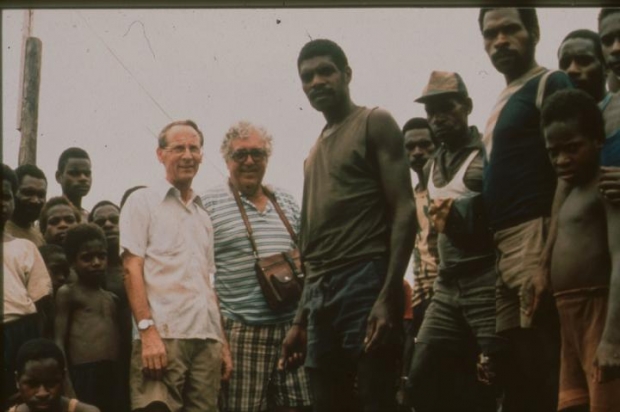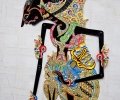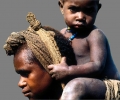Mobile Clinic
One week on water, one week off water: my initial life schedule in Pari. The schedule had never been met because I was down with malaria every two months. Thus, my bi-monthly schedule was 3 weeks on water, 3 weeks off water, and 2 weeks on bed.
Pari has three major rivers and hundreds tributaries. Five villages were by the coast, the other 20 villages were by these rivers. It took six hours to cruise from the river mouth to the river head, where the water was too shallow for the speedboat. However, I usually reached the last village at the river head on day four because I stayed overnight at some villages along the rivers.
Cruising on the sea and rivers for hours never bored me; I loved riding the waves of the Arafura Sea; I enjoyed seeing the wildlife along the riverbanks. What I did not enjoy was to have the pin of the propeller broken from crashing into floating or sinking logs. Of course, I always brought a spare pin and replacing with a new one was not difficult if they were two persons on the boat and done during the day.
Sometimes I had to cruise after dusk because there was no village reached when the darkness coming down—it was not uncommon to travel for three hours without seeing any village—then replacing the broken pin was torturing and dangerous. Hundreds of gnats would torture us with their bites—they may not transmit any disease, but their bites are very itchy. Crocodiles—we only saw their shiny eyes just above the water surface under the mangroves—might grab us if the boat approach the river bank or coast slowly.
Schools were the places I setup my mobile clinic except in Basiem and Kamur. The number of patients I served mostly depended on the population size of the people and mosquitoes and the availability of the sago supply. The more people the more patients—more precise term was ‘visitors’—because they love being examined by a doctor. Most of the children under 10 had never seen any doctor. The more mosquitoes the more patients—the real patients. There were certain weeks in which mosquito population increased above normal. When the people were gathering sago and other foods in the jungle, the villages were deserted around two months. I had to skip these ghost villages unless it was too dark to continue the trip.
If there were more than 70 people wanted to consult within one day, I asked them to group by their main symptom such as headache or abdominal pain. I reviewed the groups to identify real patients and treated them properly; the rest would receive multivitamin tablets. Even with this unethical way—which sometimes caused me feel guilty—the service usually ended around four o’clock. Too late to continue the journey, I had to sleep in one of the classrooms.
One day I finished the service early and was too tired to continue the trip. I saw some dugouts in front of the school. “Could you take me around with the dugout?” I asked the children—they always surrounded me wherever I went. They looked at each other, but nobody talked. They might not understand my request, I thought; therefore, I repeated it.
“How much do you want to pay us?” Mama Mia. They were too young to be capitalists.
To most Papuans, the straight hair—especially those connected to the Mission—came to help them. They had no obligation to return the service. On the other hand, if they do something for the straight hair, they had to receive compensation. This experience was very disappointing to me; in Flores and Java, people forced me to receive their gifts. I did not work for God; I was just an ordinary human being who needed an appreciation for favor I did to others—although not necessarily in material form.





